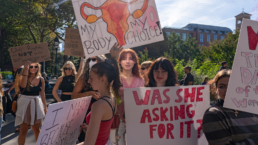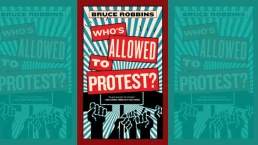Restricted abortion access will harm BIPOC youths’ chances to build stable adult lives.
By Shriya Bhattacharya, Prism
The stage seems set for a U.S. Supreme Court reversal of Roe v. Wade almost 50 years after the ruling found restrictive state regulation of abortion to be unconstitutional, which would have drastic consequences for pregnant people across the country. While older reproductive justice advocates are ready for a resurgence of all-too-familiar barriers to reproductive rights, many in Gen Z have lived their entire lives with the nominal protection afforded by Roe v. Wade. The prospect of building an adult life in a country even more hostile to reproductive rights is yet another specter looming over a generation already struggling with climate change, rising white nationalism, economic uncertainty, and other social inequities, especially in the wake of COVID-19.
“We should be teenagers; instead, we’re having to worry about what could happen to our bodies and what could happen in the future,” said Haley Reyes, a 16-year-old in Texas, which recently passed the severely restrictive Senate Bill 8.

Texas isn’t the only state that has limited reproductive rights; the Guttmacher Institute has reported that 31 states, including Florida, Kentucky, and Oklahoma, have introduced new abortion bans this year alone. Additionally, 13 states have passed “trigger laws,” which will make abortion illegal if Roe v. Wade is overturned. Despite the increased attention on reproductive justice right now, efforts to chip away at abortion access in the country have been years in the making. Conservative attorneys spent decades bringing forth cases that undermined Roe, hoping that one day the Supreme Court would overturn the ruling altogether. In her article for Vox, Jillian Weinberger also noted that when Roe v. Wade was made official 50 years ago, Democrats treated the ruling as a “largely settled matter” while the anti-abortion movement spent considerable resources and time building out a pipeline of judicial nominees who would be partial to reversing it. Now it seems that anti-abortion supporters will reap the fruits of their labor while people seeking reproductive health care pay the costs.
Recent Posts
Everyone Is Allowed To Protest
February 13, 2026
Take Action Now Tied up with the apparently very longstanding tradition of claiming that all opponents of atrocities are purely engaged in what has…
Abolition Is Still The Only Way Out Of This
February 13, 2026
Take Action Now Forget the useless so-called “reforms” to ICE and policing currently on offer. We need much more fundamental change.By Andrea J.…
Leading Papers Call For Destroying Iran To Save It
February 11, 2026
Take Action Now The opinion pages of the New York Times and Washington Post are offering facile humanitarian arguments for the US to escalate its…
Despite Marco Rubio’s Warnings, This is the Time to Go to Cuba in Solidarity Against the Latest U.S. Aggressions
February 10, 2026
Take Action Now When visiting Cuba, one can see quickly the terrible effects of the almost seven decades of the U.S. economic blockade of Cuba.By…




